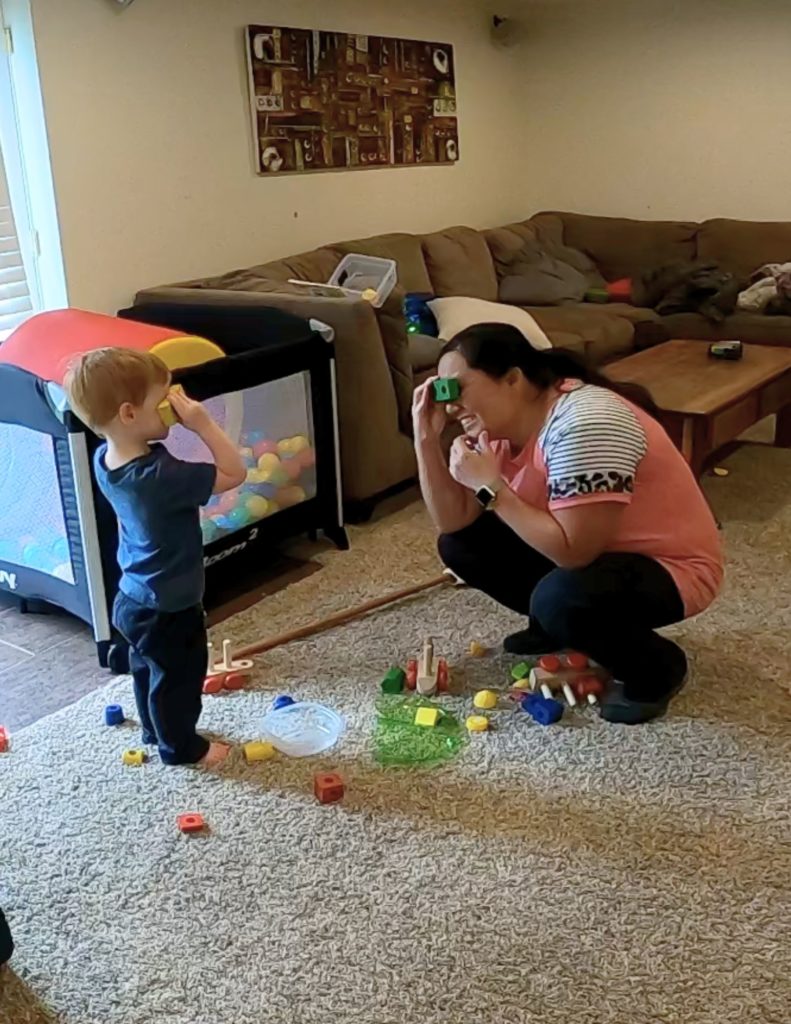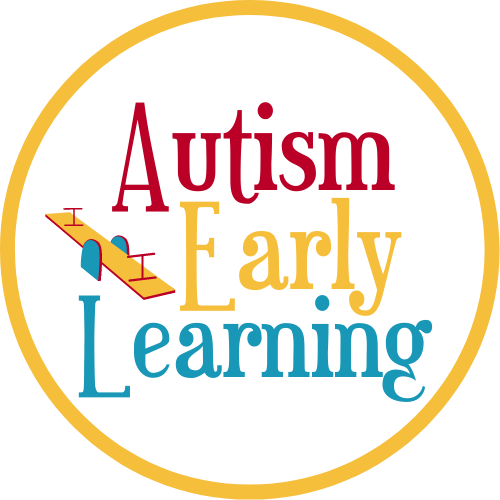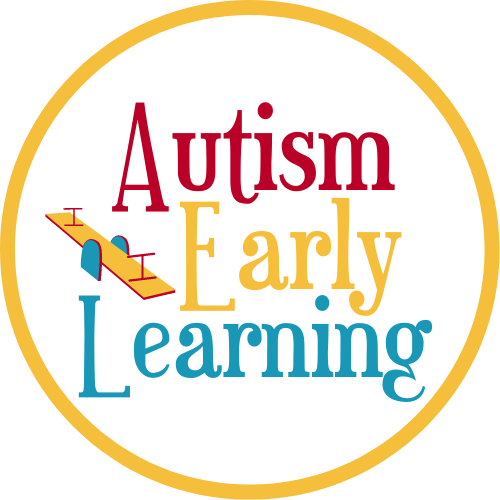Working with young autistic kids is the best, as a typical work day I get to figure out how to work on skills in the most fun way possible. My goal is to get kids engaged and work on the skills they need while using things they love to play.
Games aren’t just about fun; they can be powerful tools for enhancing various developmental skills in children. The simple 1-2-3 Go game is a versatile activity that can work wonders for children’s growth across a spectrum of areas. In this article, we’ll explore how this uncomplicated game can boost eight essential developmental skills in children.
Increase Engagement
The anticipation of the “Go” signal and the excitement of movement capture children’s attention, making them fully engaged in the game. This engagement not only contributes to the enjoyment of the activity but also helps in developing their ability to be fully present and involved in different situations.
When you are participating in a high interest activity, you can slow down the 1,2,3 and add long pauses to build the anticipation which in turn expands their attention as well as their engagement to the activity.
Increase circles of communication
If you’re not familiar with what a circle of communication, it’s the back and forth interactions between two or more people. Initiating is opening a circle and responding is closing the circle. Circles of communication are so important when a child is in the beginning phases of communication.
Taking turns initiating the countdown to “Go” encourages children to initiate actions. This boosts their initiation skills, allowing them to become more proactive in various social and interactive scenarios.
If your child is working on initiation, you can add long pauses and wait for your child to say the next part of the sequence whether it’s a number or whether it’s “go.” You can also do this with gestures, facial expressions, or any other ways your child may try to communicate.
5 Things You Can Do When You Can't Get Your Child To Engage In Play
Enter your name and e-mail to receive your 5 Tips To Improve Engagement along with more strategies and techniques to help you increase learning and growth.

Increase natural imitation
Children often naturally imitate the actions and behaviors of others. In the 1-2-3 Go game, they mimic the countdown and movement, enhancing their natural imitation skills, which are crucial for learning and social development.
Participate in purposeful interactions
The game’s structure encourages children to communicate with purpose. They initiate the countdown, engage others, and respond to cues—all of which contribute to purposeful interactions that strengthen their communication skills.
Strengthen response inhibition
The game involves stopping at “3” and waiting for the “Go” signal. This practice of response inhibition helps children develop self-control and restraint, skills that are valuable in various settings, from classrooms to everyday life. This is a fun and playful way to improve your child’s ability to wait before they respond.
Develop flexible thinking
While the game follows a pattern, it requires flexible thinking. Children must adjust their actions according to the instructions given by others, fostering adaptability and flexibility in their thinking.
There are so many different activities that you can incorporate the 1-2-3 Go game into. As you play multiple games, you build your child’s ability to be flexible in what the activity is.
Check out my video on this page where I will give you 10 Ways To Play a 1-2-3 Go Game
1-2-3 Go Games Are Building Your Child's Developmental Skills
The simple 1-2-3 Go game may appear basic, but its impact on children’s development is significant. By engaging in this playful activity, children enhance attention, engagement, initiation skills, communication, imitation, interaction, response inhibition, and flexible thinking.
Remember, these skills don’t exist in isolation—they interact and support each other, contributing to holistic growth. So, the next time you gather children for a round of 1-2-3 Go, know that you’re not just playing a game; you’re nurturing a wide range of developmental skills that will serve them well in their journey ahead.



